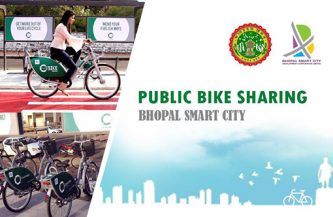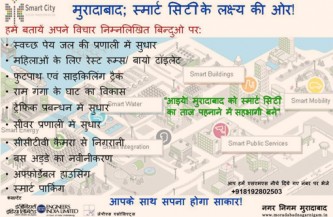Jan Dhan Yojana – A Revolutionary Financial Inclusion Program
The Brazilian mathematician Artur Avila has found a profound mathematical insight – that inside the complexity of chaos we find oases of simplicity, meaning that in every cyclone there is an eye where calm and quiet prevails. Conversely, simple changes have the potential to set of large changes and a metaphor is that little flaps of the butterfly’s wings have the potential to trigger a hurricane. The large number of accounts opened in the Prime Minister Jan Dhan Yojana (PMJDY) offers an opportunity to trigger a hurricane by applying an appropriate form of benefit transfer. In the medium term this will bring about a paradigm shift from supply- to demand-side subventions in development and welfare programs. In the long run this will be in strengthen the traditional self-reliance of Indian people and particularly reduce the vulnerabilities of the poor and the disadvantaged in the drought districts – a sort of development “big-bang”.
How to do this? Another analogy from the work of the mathematician Martin Hairer provides useful clues. Our present development and welfare programs are based on the assumption that growth is linear, not random. Suppose, we use a tissue paper to blot spilled water and we hold one end of the paper and dip the other into the fallen water. The paper gets progressively wetter and eventually soaks up all water upto the point the water reaches our hand. There are two aspects to this, first, that this is not the same as water flowing through a pipe, which is similar to what our existing development programs assume; and, second, the next piece of tissue paper will not absorb the water in exactly the same way as the earlier one, meaning that the roll-out of the program has to take into account the context and the unique political, social and political order existing in the State.
Hairer’s speciality is to study and understand such haphazard, random processes and now let us draw analogies from the insights obtained by him. Hairer’s insight is that since the imperfections are at a smaller level, as compared to growth itself, growth can be modelled at each imperfection by disaggregating the overall equation into smaller fractions and adding these up. Importantly, the level of reduction is a matter of judgement and need not always be the smallest level. In order to account for the randomness represented by the local context and local orders, development programs have to identify the smaller fraction. The category of the benefit transfer is the fraction here. There are three categories of benefit transfer – total (direct cash transfer), restricted (conditional cash transfer and vouchers) and contrived (employment programs). These have to be connected to the programs, benefit transfer is proposing to replace.
Direct (unconditional) cash transfer can replace programs where items people need are available in the market, risk of inflation is low, chronically poor are in need of repeated and continuing assistance and security of cash transfer is acceptable. Conditional transfer can substitute for programs in which specific needs have to be met and larger sums have to be distributed to meet these needs. Alternatively, vouchers are useful if there is scarcity of a commodity or a service, there is a risk of inflation or security concerns about cash transfer, program aims to achieve a specific goal, enterprises or market in a particular commodity or service have to be developed and detailed monitoring data is required. Finally, if particular community works are required, equipment is available, the people have the capacity to undertake the work and, thereafter, maintain the assets; then, cash for work is the preferred choice.
Based on the above analystical framework, the programs that can be transmuted to one or more forms of direct benefit transfer have to be identified and cash transferred directly to the PMJDY accounts of beneficiaries. The next big bang will be the refrom in the subsidy regime after compeltion of Aadhar seeding in the bank accounts.
(Views are personal)
– Dr. Sameer Sharma,
Additional Secretary, MoUD





